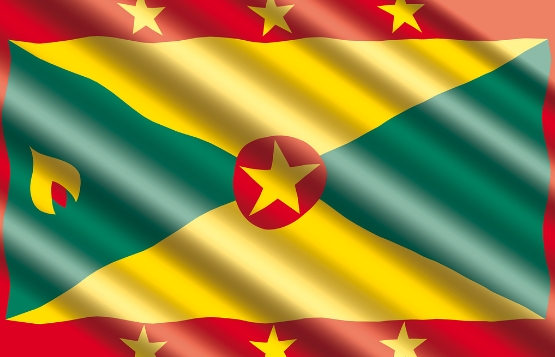
The Citizenship by Investment Programme
Some information about Grenada
Grenada is an island country in the West Indies, and consisting of Grenada itself, the most southerly of the Windward Islands, and the group of small islands of the Southern Grenadines.
Grenada is located northwest of Trinidad and Tobago, northeast of Venezuela, and southwest of Saint Vincent and the Grenadines. All the boundaries are maritime. The total length of the coastline is 121 km (75 miles), from the West bordering the Caribbean Sea, on the East by the Atlantic Ocean.
The islands are volcanic in origin with a rugged coastline, coral reefs, convenient bays and plenty of secluded beaches. Grenada’s interior is very mountainous with Mount St. Catherine being the highest at 840 m (2 760 ft). Several small rivers with beautiful waterfalls flow into the sea from these mountains.
The size of the island of Grenada is small – just 18 km (11 mi) wide and 34 km (21 mi) in length, a square of about 310 sq km (120 sq mi). Carriacou, located 27 km (17 mi) northeast of Grenada, is smaller – about 32 sq km (12 sq mi), and Petit Martinique only 2,5 sq km (0,96 sq mi), about 5 km (3 mi) northeast of Carriacou is also part of the State. It has a population of 108,000 (2017), almost 90% lives on the island of Grenada. SaintGeorge’s is a capital city. English is the official language of Grenada. The East Caribbean Dollar is the island’s currency.
History
First settled by indigenous peoples, by the time of European contact it was inhabited by the Caribs. Island opened in 1498 the third expedition of Christopher Columbus, who named it on behalf of the Spanish province and the city of Grenada (Granada at present). Only in 1650 the Governor of the French colony of Martinique founded the first European settlement on the island. For many years Grenada passed from hand to hand: in 1672 – 1762 and 1779 – 1783 it was a colony of France; in 1762 – 1779 and 1783 – 1956 – was a part of the British colony of the Leeward Islands; in 1958 -1962 – was a part of the UK West Indies Federation. At the end of the 18th century sugar plantations greatly suffered from natural disasters, and planters shifted to the cultivation of the nutmeg and other spice crops. Grenada achieved independence from Britain in February 7, 1974 and is a constitutional parliamentary monarchy at present. It is a part of the British Commonwealth of Nations.
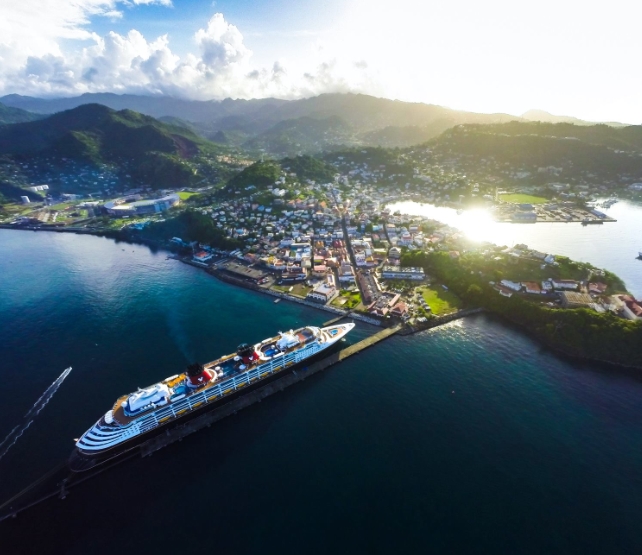
Tax Heaven
Grenada is an offshore jurisdiction with an attractive tax regime. The financial sector of the offshore zone Grenada is progressive and provides for the formation and registration of offshore companies and legal entities. Offshore services in Grenada are provided by qualified professionals, including lawyers, accountants and insurance agents. A decisive role in the development of Grenada as a competitive offshore tax havens played a wide variety of forms of organization of offshore companies.
In Grenada provides the following offshore services: the registration of international trusts funds; services on the international insurance and registration of international insurance companies; offshore banking; registration of international business companies; registration of mutual funds.
The law guarantees the privacy of the owners and directors of offshore companies. Information on banking operations of the offshore company is confidential.
Government Administration
Since February 1974 Grenada is an independent state, a constitutional parliamentary monarchy within the British Commonwealth. The head of state is the British monarch, represented in the country by Governor-General. His responsibilities include executive functions of the head of state, and the appointment of the Government on behalf of the monarch. Legislative power is vested in a bicameral parliament. It consists of an elected House of Representatives and the Senate. Executive power is vested in the Government headed by the Prime Minister. Members of the Government appoint the Governor General on the recommendation of the Prime Minister. The military and police functions are carried out by the Royal Grenada Police Force, and Coast Guard.
Administratively the country is divided into six districts on the island of Grenada and one dependent territory (islands of Carriacou and Petit Martinique). Member countries of the Organization of Eastern Caribbean States (OECS) – Antigua and Barbuda, Dominica, Grenada, St. Vincent, St. Kitts and Nevis and St. Lucia – have a joint Supreme Court of the Eastern Caribbean, with headquarters in Saint Lucia. It consists of the Supreme and Appeal courts. The highest authority is represented in Grenada by the Judge-resident, who functions as the supreme judge of the country
The Citizenship By Investment Programme
Citizenship Details
The citizenship by investment programme of Grenada was founded in 1990 and operated until 2001. The reason for closing the programme was the terrorist attacks in USA in 2001. The Government of Grenada found that there is a risk of buying the passports by terrorists that would compromise the country’s reputation and discredits the programme. The updated version of the programme was launched in May 2013 and offers the opportunity to obtain the citizenship of Grenada, by making a financial contribution to the state’s economy. Grenada passport holders have visa-free or simplified entrance to many countries of the world.
The programme is aimed at supporting the national economy and closely cooperates with the enterprises of the local economy to improve the welfare of the population.
Applicants must be good people, have good health and the opportunity to invest in one of the Government approved projects. The main applicant must be over eighteen years of age, meet the requirements of the programme and to choose one of two investment options: a donation to the National Transformation Fund (NTF) or the purchase of real estate.
To qualify for citizenship via investing in real estate, the value of the acquired property must be a minimum of USD 220,000 and the development must be approved by the government. You are not allowed to sell on your investment during a 4-year period, but you can receive income from the activities of the project.
Another way to obtain citizenship is to invest in the National Transformation Fund in the amount of USD 150,000. This option does not provide for the return of dividends from your invested money.
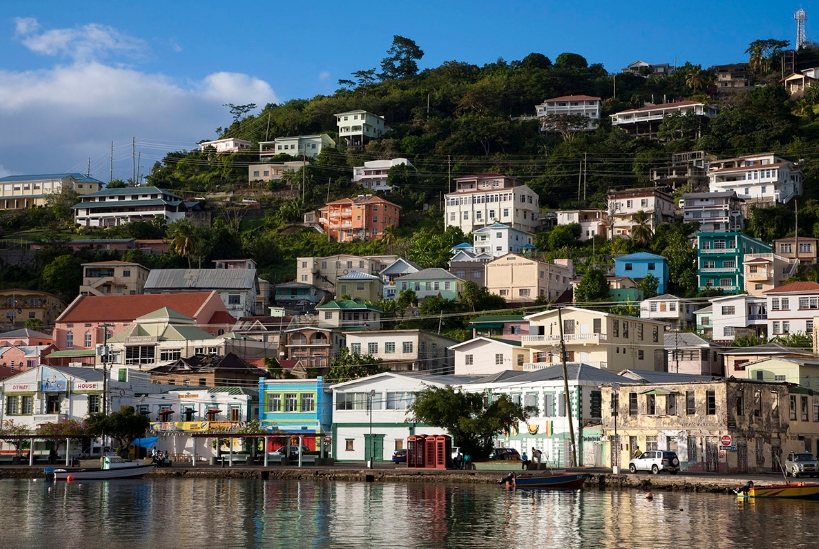
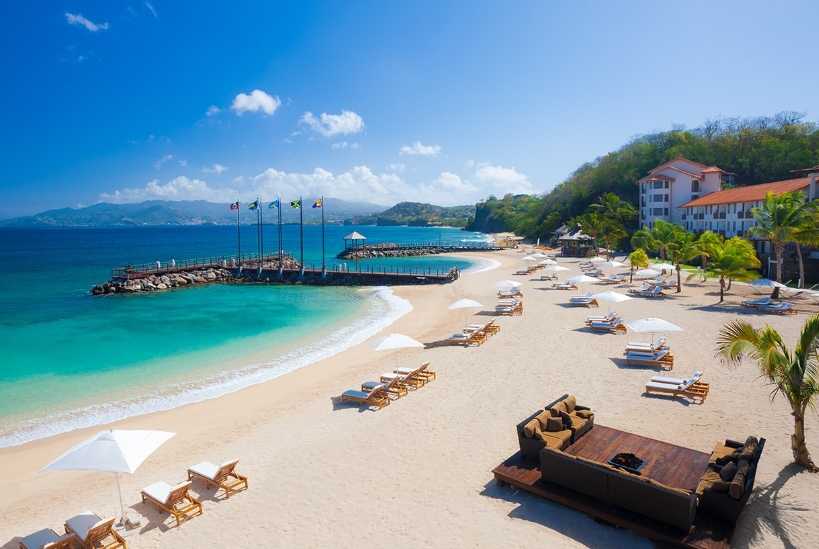
Features and benefits
Citizenship and passport of Grenada is
Freedom – the opportunity to travel without visas in more than 120 countries, without restrictions and harassment. Alternative citizenship of a peaceful country with an excellent international reputation may be indispensable in case of political instability and can also be used to confidential business activity.
As a result of the programme the investor receives full citizenship with the right to permanent residence in Grenada, as well as the right to elect and to be elected. This is lifelong citizenship, and it can pass to children and grandchildren who are entitled to the citizenship by descent, i.e. without any additional investment.
Asset management and tax planning. Second citizenship of Grenada – a legitimate way to reduce taxes; revenues generated abroad, capital gains, gift, estate, inheritance are not taxable in Grenada.
Profitable cost of the programme, rapid processing of documents
Benefits of acquiring Grenada Citizenship
Grenada without limitation recognizes dual citizenship. You can have dual citizenship, without renouncing their native.
There is no requirement to be in Grenada before or after obtaining citizenship, while you have the same rights as other citizens of the country
The investment in one of the approved projects provides an opportunity not only to obtain a second citizenship, but also to make profitable investments in the business and gain a financial return on invested capital.
Between Granada and the United States signed an agreement that allows the citizens of Grenada to receive E-2 visa (this type of visa allows business immigration in the US and is available for a limited number of countries).
The process of obtaining citizenship of Grenada is confidential and does not include the exchange of information with anyone. Grenada does not disclose information about their citizens and residents and does not notify the state of the original nationality of the applicant.
Among the core benefits of being a Citizen of Grenada is the ability to travel freely to over one hundred and twenty (120) countries and territories, as well as the option to live in and work in any of the fifteen (15) Caribbean Community and Common Market (CARICOM) member states.
You don’t have to worry that your passport of Grenada would have a bad reputation or that you would be sharing you citizenship status with shadowy characters. Both the existing procedures and the regulatory framework of granting economic citizenship are certain to preclude such precedents.
As a Commonwealth citizen, you will have pre-emptive rights in the UK and your children will be able to benefit from the UK’s youth mobility scheme, receiving preferential treatment when applying to colleges and universities in the United Kingdom.
Country Development
Economy
Organization of Eastern Caribbean States (OECS) is a regional group of island economies, consisting of Anguilla, Antigua and Barbuda, the Commonwealth of Dominica, Grenada, Montserrat, Saint Kitts and Nevis, Saint Lucia, and Saint Vincent and the Grenadines. OECS members have highly integrated economies and financial sectors, a common currency within the Eastern Caribbean Currency Union and the common central bank – the Eastern Caribbean Central Bank (ECCB). The mission of this Monetary Authority is to maintain the stability of the EC dollar and the integrity of the banking system in order to facilitate the balanced growth and development of member states. The conservative policy of the Bank has led to the stability of the currencies of the participating countries and made the East Caribbean dollar one of the strongest currencies in the region.
In 1996 the Government of Grenada has adopted several legal documents regulating offshore banking (The Offshore Banking Act, The International Business Companies Act and others), and in 1997 started providing offshore financial services. This sector is constantly evolving and is one of the foundations of the economy. The activities of offshore banks are regulated by the Grenada International Financial Services Authority (GIFSA), which monitors and controls the offshore financial operations.
The legal system of Grenada, as a former British colony, is based on common law. However, to meet the specific needs of the state in the financial, social and fiscal policy was adopted by a number of local laws. A set of laws has also been adopted to ensure the functioning of the state as a tax haven, when creating the system of offshore services and products in Grenada. Such steps have been taken to ensure that the offshore service providers operated in accordance with both local and international standards. As an offshore island Grenada offers numerous opportunities to reduce the tax burden through participation in offshore companies and corporate structures, which are exempt from local taxes and have the tools for asset protection. This is a regulated offshore jurisdiction, which adheres to international standards for the provision of offshore financial services.
Tax benefits and advantages of Grenada: – 20 years tax exemption for offshore companies; – No stamp duties; – No tax on property and inheritance; – No tax on capital gains; – No tax on profits; – No tax on transfers; – No tax on business and land tax for foreign owners; – Special access to international markets; – Favorable business environment for investors.
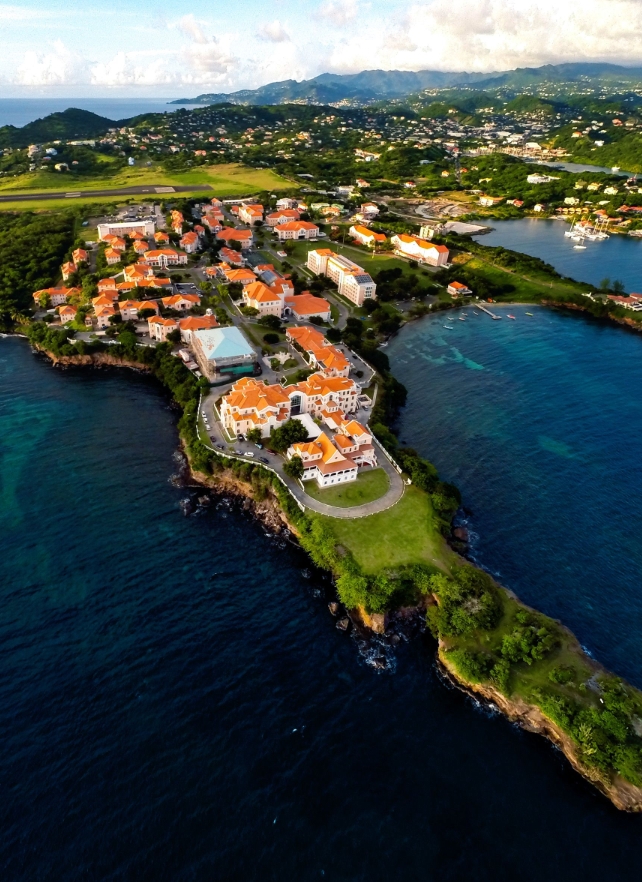
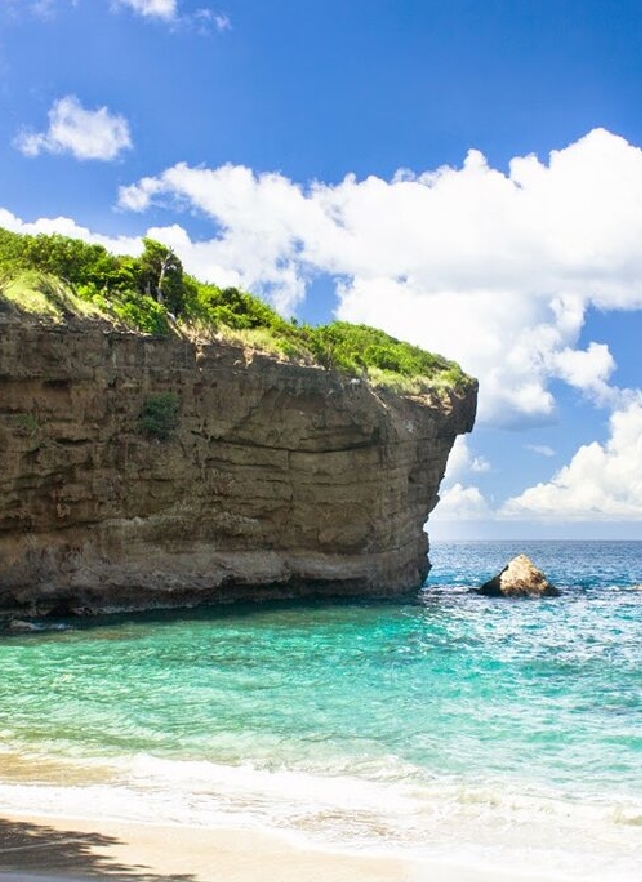
Grenada is a member of Caribbean Community (CARICOM) and the Commonwealth of Nations. CARICOM is an international organization which consists of 15 member states all of whom are based in the Caribbean. CARICOM works to promote economic co-operation and integration in the region. The secretariat headquarters is based in Georgetown, Guyana.
The Commonwealth of Nations is a voluntary organization of 53 countries which share no legal commitment to each other but have a common goal of enhancing the “development of free and democratic societies” and “promoting peace and prosperity to improve the lives of all peoples of the Commonwealth.”
There are many benefits to Commonwealth members such as easier travel between Member Countries, protection of all Members by other embassies and commissions around the world and eligibility for certain sporting activities (the Commonwealth Games).
Grenada is also a member of the Eastern Caribbean Currency Union (ECCU), whose members are: credit unions, national development funds, offshore banks, building and loan associations, local banks and insurance companies. Grenada participates in financial and economic initiatives ECCU and adopts its various laws enacted at the regional level.
Grenada is also a member of the UN and its specialized organizations, African, Caribbean and Pacific Group of State (ACP countries), Organization of American states, World Trade Organization (WTO) and others.
The economy of Grenada is economy of nutmeg and tourism. Tourism began to develop rapidly after the construction of the international airport in 1985 and has become a major source of foreign currency earnings of the country. In the service sector and trade employs 62 % of the working population. Grenada’s main cash crop is nutmeg, giving its unofficial name – “Island of Spice”. On the flag of Grenada, on the left triangle, there is a symbolic image of the rind of nutmeg. Grenada is the second (after Indonesia) supplier of this spice on the world market. Agriculture is focused on the production of bananas, cocoa beans and spices (vanilla, cinnamon, cloves), which are exported.
Grenadian soil is very fertile, providing the country’s independence from external food markets. Ocean delivers to the local table a huge amount of seafood and fish, which gives the country the status of one of the richest fish cuisine in the Western Hemisphere. The livestock sector has not received significant development; local production cannot meet the needs of the population. From the industry in Grenada developed textile production, although it is not in too large quantities. Batik or waxed fabric handmade is popular with tourists, but the locals don’t wear it too often. Imported manufactured goods, electronics, automobiles, chemicals, fuels. Major trading partners are the USA, the Caribbean countries, UK, Germany. The length of roads is 1040 km (646 mi); 638 km (396 mi) of roads are paved. There are sea ports in St. George’s and Grenville, as well as three airports, including one international, and the ferry connections to the Islands of Carriacou, Petit Martinique and St. Vincent.
Under current regulations, to qualify for citizenship of Grenada under its Citizenship by Investment Programme, the Government requires either a contribution made into the National Transformation Fund (NTF) amounting to USD 200 000.00 depending on the number of dependents included in the application or an investment in approved Real Estate project with a value of at least USD 350 000.00. You may not resell your property within three (3) years, but can receive income from the activities of the project. The NTF option does not provide for a refund of dividends from the invested money. Additional payments for any dependents included in an application, due diligence fees, government fees and other fees are also payable.
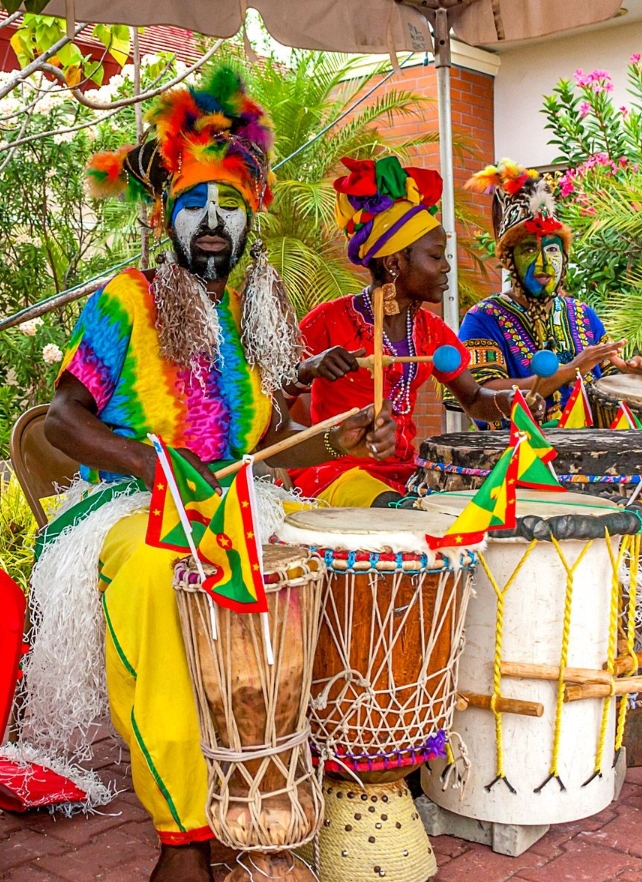
Nature and culture
The internal areas of the island Grenada occupied by lush tropical forests, mountain ranges, rivers, waterfalls and beautiful lakes. The central part of the island is a low mountain chain formed by the slopes of several ancient volcanoes. A small island of Carriacou (“the island of reefs”, the Arawaks), the southernmost and largest in the chain of the Southern Grenadines with its beautiful harbour, is one of the best marinas in the Caribbean and a wonderful place to explore the unique culture of the descendants of African slaves.
The tiny island of Petit Martinique is a round volcanic cone. Petit Martinique was inhabited by French settlers in the early XVII century, and about a thousand of its inhabitants today are descendants of those first settlers. The island has its own school, church, guest house and a shop with a bar, which is quite a rare fact for such a small island, but there are no police, customs or banks.
Despite the small size of the country, there are many conservation areas. Unique to the region mountainous rain forests of Grenada is almost completely withdrawn from human activities, and beautiful reefs continue to be objects of attention, as the country’s government and international environmental organizations. Protected sea shoal Oyster Berds, lying at the entrance to the Tyrrel Bay, is one of the ancient ecosystems in the region. Reserve Grenada Dove, lying at Halifax Harbor, is responsible for the protection of the country’s national symbol – Grenadian dove, due to its rarity also known as the “invisible bird.”
All the main entertainment in Grenada is associated with the sea. Scuba diving, snorkeling, yachting, fishing. However, the island also has a Golf course. The beaches on the island are with fine white sand, quite narrow. The waters around Grenada have extensive reef areas. A fantastic variety of fish, rare sea turtles, dozens of species of sharks, whales and dolphins – all can be found in the waters of Grenada. Numerous small reefs and underwater walls were a real threat to ships of the Age of Discovery, so in the waters around Grenada can be found traces of shipwrecks, for special interest to divers.
Culture of Grenada is a turbulent mix of British, African, Indian and French traditions. It hosts a lot of different festive events, the most important of which is Independence Day, celebrated with a military parade in St. George’s. Easter and Easter Monday are days for the Festival of kites (all over the island Grenada). Every year in January at the “Island of spices” is conducted the tournament fishing for garfish, which brings together the best anglers in North America and the Caribbean. In late January, there are held a Grand Regatta and yacht festival known as “Grenada Sailing Week” and collect enthusiasts from all over the world. Carriacou Carnival (end of February, 2-4 days) is full of street parades, masquerades and various artists calypso competitions.
Company
Investment programmes
© 2021 All rights reserved.